by Olive Balla
The current economy has become a tough sparring partner for those of us who dream of seeing our stories in print. Many budding writers, after having been rejected for the umpteenth time, are tempted to crawl off into a corner and lick their wounds while hugging their latest manuscript to their bosoms. After finally getting a bellyful of rejection, a friend of mine—a published playwright with two sold and performed plays under her belt—has permanently packed away her storytelling persona. That’s not only sad, but it’s a loss to our culture.
It’s not that I can’t relate to my friend. I can.
More than one agent has responded to my email query with words decrying harsh fiscal realities and suggesting my story might be marketable in less turbulent times. One soft-hearted agent actually apologized for turning me down. She offered words of comfort, saying her refusal did not mean my writing was not good; in fact, she’d spent a great deal of time in making her decision, but she could only accept authors who were a “surefire” sell.
So, where does that leave those of us who are not of the J.K. Rowling ilk? What are the options available to those of us who would be thrilled just to have our work out there, and hopefully, being read—even if our readership might not number in the tens of thousands? The good news is that there are still some avenues open to today’s writers.
Many authors are opting to self-publish, shouldering the task of marketing their own books. This approach can not only cost a great deal of the author’s up-front money, but is heavily contingent upon the amount of time the author is willing, or able, to put into selling herself.
Other writers have put their stories online, selling them for 99 cents a pop as Ebooks. This tactic has potential, especially when there are so many folks willing to risk 99 cents on a virtual book rather than spend eight dollars for a paperback.
Some shop their books to small publishing houses in hopes that having one published book will lead to heightened marketability for the next. But a small publisher often does not pay an advance, much less an advance for future books. I know one writer who was thrilled to have her first book published by a small house, but had to start all over again when the publisher went bankrupt.
One thing for sure, the art of writing has metamorphosed into a completely different creature from what it was 50 years ago. Or perhaps the art itself has not changed so much as has its audience. People whose lives are scheduled in five-minute increments simply don’t have the time, or the patience, to slog through an initial ten pages of description before getting to the meat of a story. For those of us who feel it necessary to bring the reader up to speed on characters and their pre-story lives, this presents a challenge. At what point in the story should we describe our protagonist’s physical, mental, spiritual, and emotional attributes? How much detail should we offer about the setting?
Having spent hundreds of dollars on how-to writing books, I’ve found one golden thread that connects them all: if I want my fiction to be published, I must adopt a marketable style of writing and I must know my audience.
But isn’t writing merely to sell prostituting the craft? That depends upon one’s perspective, as well as one’s goals. Every writer comes to a fork in the path and must make a choice: she can stubbornly stick to her style and be satisfied with the superlatives offered by friends and family; or she can sharpen her technique so that complete strangers will not only want to read her stories, but will pay to do so.
As for me, my storyteller’s head may be bloodied, but remains unbowed. To give energy to the thought of hanging up my writer’s crop and jodhpurs is anathema to me. Because the escapism of fiction brought me through a difficult stretch in my life, I will continue to find time to close out the rest of the world and catapult my senses into other times, other places, and other dimensions. I will continue tweaking, refining, and querying. I will continue to pay my subscriptions to various writers’ magazines, I will enter writing contests, and I will continue to connect with other writers at meetings and conferences. But most importantly, to paraphrase Winston Churchill: I will never, never, never give up.
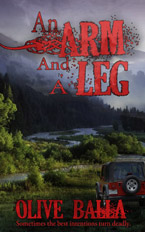 Olive Balla, author of suspense novel An Arm and a Leg, is mother of 3, grandmother to 13, great-grandmother of 4, a retired educator, and part-time professional musician. Having been everything from secretary at a used car dealership, a university student, and a high school Spanish teacher, Balla states her characters are, in part, amalgamations of people she’s met. Living with her husband Victor in the Albuquerque area, she spends her spare time in a small woodworking shop designing and building everything from breadboxes and wine racks, to a porch bench. Visit her website at omballa.com.
Olive Balla, author of suspense novel An Arm and a Leg, is mother of 3, grandmother to 13, great-grandmother of 4, a retired educator, and part-time professional musician. Having been everything from secretary at a used car dealership, a university student, and a high school Spanish teacher, Balla states her characters are, in part, amalgamations of people she’s met. Living with her husband Victor in the Albuquerque area, she spends her spare time in a small woodworking shop designing and building everything from breadboxes and wine racks, to a porch bench. Visit her website at omballa.com.
This article was originally published in the June 2011 issue of SouthWest Sage and is reprinted here by permission of the author.



 Bentley Clark thinks her artistic purpose may have run away from home. If you happen to find it wandering the streets, alone and bewildered, please leave a comment.
Bentley Clark thinks her artistic purpose may have run away from home. If you happen to find it wandering the streets, alone and bewildered, please leave a comment.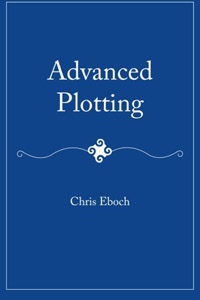
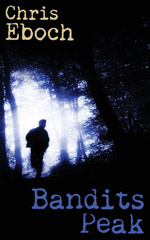
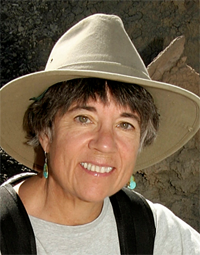 I carry a journal with me, always. Especially in Mexico.
I carry a journal with me, always. Especially in Mexico.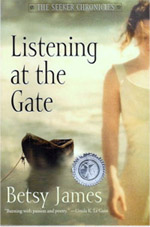 Betsy James is the author-illustrator of sixteen books and many stories for adults, teens, and children. Her latest novel, Listening at the Gate, is a Tiptree Award Honor Book and a New York Times Best Book for the Teen Age. Forthcoming: Roadsouls, her next fantasy, will be available in 2016 from Aqueduct Press. Visit her at
Betsy James is the author-illustrator of sixteen books and many stories for adults, teens, and children. Her latest novel, Listening at the Gate, is a Tiptree Award Honor Book and a New York Times Best Book for the Teen Age. Forthcoming: Roadsouls, her next fantasy, will be available in 2016 from Aqueduct Press. Visit her at 
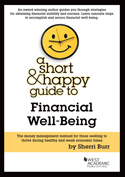

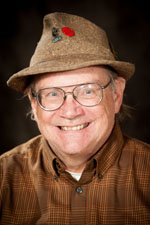 Fred A. Aiken has an MBA from Cleveland State University and has taken graduate level coursework on Federal Income Tax. A member of SouthWest Writers since 1996, he writes spiritual/inspirational and non-fiction articles as well as mystery and science fiction/fantasy stories and novels.
Fred A. Aiken has an MBA from Cleveland State University and has taken graduate level coursework on Federal Income Tax. A member of SouthWest Writers since 1996, he writes spiritual/inspirational and non-fiction articles as well as mystery and science fiction/fantasy stories and novels.























